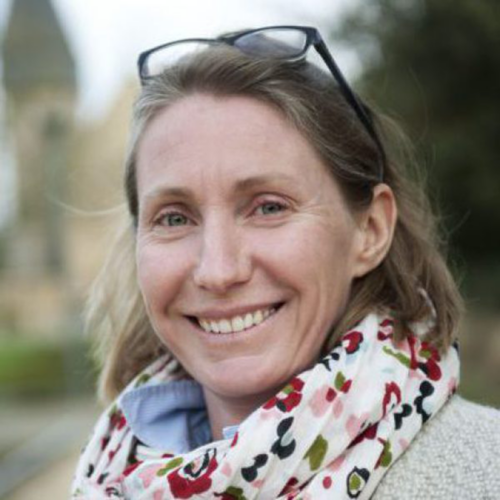Sport for Life making inroads in France: Equipping French sports clubs with physical literacy
 In today’s global landscape, the significance of physical literacy is gaining traction, spearheaded by dedicated researchers and experts like those who shared their work at the International Physical Literacy Conference (IPLC) in May. These physical literacy champions aim not only to illuminate the significance of physical literacy but also to equip individuals with the knowledge and resources to promote engagement in lifelong movement.
In today’s global landscape, the significance of physical literacy is gaining traction, spearheaded by dedicated researchers and experts like those who shared their work at the International Physical Literacy Conference (IPLC) in May. These physical literacy champions aim not only to illuminate the significance of physical literacy but also to equip individuals with the knowledge and resources to promote engagement in lifelong movement.
In recent years, Sport for Life has collaborated with a dedicated team in France to further the growth of physical literacy—a budding concept in the country.
In this interview, we delve into the insights of Sandrine Rabaud, recently appointed Senior Technical and Educational Advisor senior technical for the French Handisport Federation and formerly with the French Federation of Sports Clubs. Before working for the French Ministry of Sport, Rabaud already had a wealth of experience in high-level sport as a teacher and an inline skating coach. What she shared with us is a testament to the changes and progress that are taking place in the country in terms of physical literacy.
Physical literacy in France and beyond
As a sport technical advisor, Rabaud provides her expertise and passion to national sport policies and their implementation, ranging in scope from sport for all to high-performance sport and talent development, and management training. She is one of over 1,600 technical and pedagogical advisors working for the Ministry of Sport in similar roles across 79 sports federations globally, including Olympic and Paralympic and multi-sport organizations.
In 2021, Rabaud discovered the concept of physical literacy, ultimately leading her to Sport for Life’s work. “Physical literacy is the gateway to empowering individuals of all ages to maintain an active lifestyle. Continuous learning and positive physical activity engagement are key to ensuring a lifelong commitment to health and well-being.” Rabaud said. Since discovering physical literacy, Rabaud has worked hard to raise awareness of it among federations and clubs in France, and demonstrate its importance to sports practitioners. As the concept gains momentum in the country, this is an important first step.
Sports clubs in France currently offer diverse activities like football, rugby, and basketball, catering to all ages and abilities. These clubs to reinforce fundamental movement skills and teamwork and cultivate a sense of community. From supporting grassroots participants to high-performance athletes, each club plays a vital role in fostering an active lifestyle and overall well-being, contributing significantly to the country’s culture of sport.
As an ambassador for physical literacy, Rabaud is looking far ahead and wants to bring about change within the sports system. As part of her work, she reflects on the evolution of multi-sport clubs in France, where there has been a positive shift as sports clubs work to align their mission with the principles of physical literacy. “To truly promote physical literacy, we need a holistic approach involving educators, policymakers, and sports organizations working together to prioritize physical literacy in schools and national policies,” Rabaud said.
She also recognizes the importance of implementing a holistic approach to physical literacy, moving beyond isolated initiatives— a goal that comes with challenges. Given that, and looking ahead, Rabaud’s aspirations are rooted in a desire for sustainable change. Her work aims to broaden the scope of physical education programs to involve diverse stakeholders and management team members, not just educators. Rabaud would like to see physical literacy become an integral part of national policy and form a solid basis for combating physical inactivity
Breaking silos for inclusion
Discussing the challenges faced by the French sports system, Rabaud emphasizes the need to break down silos and promote cross-sectoral collaboration. While the Ministry of Sport’s commitment to inclusion is commendable, she points out the importance of a united structure, where physical literacy is embraced as a foundation and is key to fostering genuine inclusion.
For Rabaud, one of the most significant benefits of physical literacy is its power to foster inclusion. “Physical literacy breaks down barriers to participation by promoting fundamental movement skills,” Rabaud said. “When individuals feel confident in their physical abilities, they are more likely to engage in sports and physical activities, promoting diversity and inclusivity in sports.”
The global impact of prioritizing physical literacy
Rabaud’s research surrounding the concept of physical literacy has shown her the immense global impact of prioritizing physical literacy. “By instilling a love for sports and physical activity from an early age, we can shape healthier and more active communities,” Rabaud said.”It empowers individuals to make healthier choices, improves overall well-being, and fosters a sense of belonging and camaraderie.”
As an advocate of lifelong sports engagement, she challenges the concept of early specialization. While acknowledging the importance of early engagement for specific technical skills, she stresses the need for a holistic approach. Her vision for the future includes integrating physical literacy into international discussions and encouraging interdisciplinary collaboration.
How Sport for Life is supporting country-wide change
Sport for Life’s Summit in Quebec and the IPLC in New York have also transformed Rabaud’s thinking. She explained that French multi-sport clubs now better understand lifelong sports participation and are learning more and more about physical literacy and being active for life. Through the training offered by Sport for Life, including workshops, eLearnings, personal training with Sport for Life staff, and PLAYBuilder, clubs have increasingly embraced physical literacy, leading to a shift in their offerings. So far, and thanks to Rabaud’s work and enthusiasm around the concept of physical literacy, she has funded the development of physical literacy training for 18 sports leaders across various clubs.
We can’t wait to hear about Rabaud’s work as she continues championing physical literacy in France!

